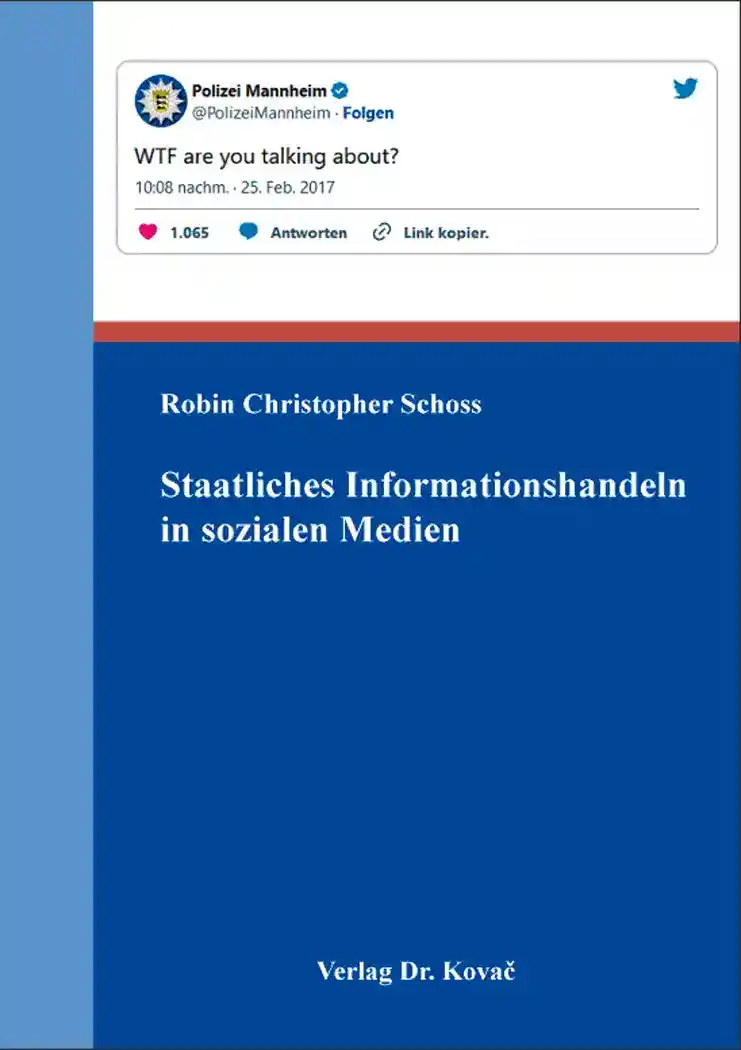Robin Christopher SchossStaatliches Informationshandeln in sozialen Medien
Eine kritische, rechtliche Betrachtung der Legitimität, grundrechtlichen Relevanz und der Möglichkeiten der positiv-rechtlichen Normierbarkeit hoheitlich-massenmedialen Informationshandelns unter besonderer Berücksichtigung der Informationstätigkeit der Polizei in sozialen Medien
Verfassungsrecht in Forschung und Praxis, volume 159
Hamburg 2023, 232 pages
ISBN 978-3-339-13588-9 (print)
ISBN 978-3-339-13589-6 (eBook)
About this book deutschenglish
Governmental Use of Social Media
Government agencies – from the German Chancellor to rural police departments – now use popular social media platforms for self-promotion. Police departments in particular are active on Facebook and Twitter with their "Einsatzberichterstattung" and catch a lot of attention in the process, as evidenced by six-figure follower numbers in some cases. But this so-called "Polizeitwitter" has also startedfattracts negative attention time and again: Not least because of bans on speculation, fake news ("doorknob of death") and even obscenities ("WTF are you talking about?"), observers ask themselves: is this form of state (information) action legal?
This background and the resulting legal uncertainty give rise to this study. It begins with an inventory of state information action in social media and, in this context, examines the effects on fundamental rights. Based on the fundamental rights investigation, the questions of legality and fundamental legitimacy of governmental use of social media are considered. The study concludes with an analysis of previous approaches to legal regulation and finishes with a proposal of its own.
The work takes the reader from the humble legal beginnings of governmental information policy – the "Osho" and "Glykol" decisions of the German Federal Constitutional Court – to current discussions about minimum content standards for governmental and the state as an active participant in a "participatory democracy". As a result, this dissertation argues in favor of regulating the state's presence in social media - not only on the basis of jurisprudential considerations regarding the materiality and fundamental rights relevance of this state action, but ultimately also to create legal certainty and as a contribution to the transparency of state action.
